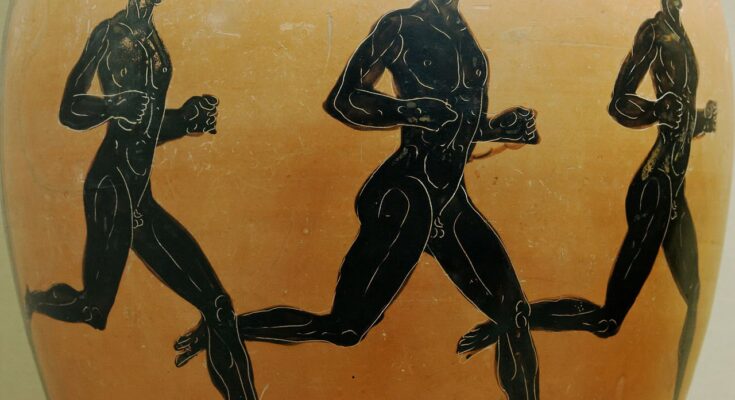The Romans banned the Olympic Games in Greece in 393 AD under the rule of Emperor Theodosius I. At least this is the predominant view held by most historians to date.
This decision was largely influenced by the emperor’s efforts to promote Christianity and suppress pagan practices. The Olympic Games, which were deeply rooted in ancient Greek religious traditions and honored the Greek gods, were seen as incompatible with the Christian faith.
Theodosius I, a devout Christian, aimed to consolidate and strengthen Christianity throughout the empire, leading to the prohibition of many traditional festivals and practices that were considered pagan, including the Olympic Games.
Theodosius I, also known as Theodosius the Great, was Roman Emperor from 379 AD until his death in 395 AD. He was the last emperor to rule over both the eastern and western halves of the Roman Empire.
Theodosius is best known for his efforts to make Christianity the dominant religion in the Roman Empire. He issued decrees that effectively made Nicene Christianity the state religion, and he took strong measures against pagan practices and heretical Christian sects.
Born in 347 AD in what is now Spain, Theodosius came from a family with Roman and possibly Hispano-Roman origins. His birthplace, Cauca (modern-day Coca, Spain), was part of the Roman Empire. His reign marked a pivotal point in the history of the Roman Empire, as it transitioned towards a predominantly Christian society, influencing the development of medieval Europe.
Doubts that the Romans banned the Olympic Games
The decree that specifically targeted the Olympic Games was likely part of Theodosius’ larger legislation against paganism, including the “Theodosian Decrees” from 391-392 AD, which banned sacrifices, closed temples, and prohibited other forms of pagan worship.
However, some historians dispute that Theodosius specifically targeted the Olympic Games. Theodosius I did issue a series of edicts against pagan sacrifice and these have been preserved in a collection of laws known as the Theodosian Code, which was compiled in the fifth century AD by the emperor’s grandson. An excerpt from one of these edicts states:
No person at all … shall sacrifice an innocent victim to senseless images in any place at all or in any city. He shall not, by more secret wickedness, venerate his lar with fire, his genius with wine, his penates with fragrant odors; he shall not burn lights to them, place incense before them, or suspend wreaths for them.
Neither this passage nor any of the other edicts in the Theodosian Code, actually mention the abolition of the Olympic Games, historians Caillan Davenport and Shushma Malik say in an article published recently in The Conversation.
“The evidence suggests that sacrifices had largely ceased to take place at these events by the mid-fourth century as a result of changes in religious practices,” they note.
In addition, they argue, the games at Olympia remained popular throughout the Roman period, with athletes competing both for their personal fame and for glory for their home city. A recently discovered inscription listing victorious athletes demonstrates that the games were still going strong through to Theodosius I’s reign. The court poet Claudian then refers to the Olympics in 399 AD, after the emperor’s death.
“Olympic festivals (named after the original games at Olympia) continued to take place elsewhere in the Roman empire as well. The Olympics at Ephesus are attested until A.D. 420, and they continued at Antioch in Syria until the early sixth century A.D, ” the historians write in The Conversation.
Olympia fell into disuse
The games at Olympia ended not because of the Roman Emperor’s edict but because the site and the infrastructure for the contests (such as the buildings used to house athletes) fell into disuse, they argue.
“The statue of Zeus, one of the seven wonders of the world, was removed from the temple and taken to Constantinople. The workshop of Phidias, who built the statue, was converted into a church. This evidence suggests a gradual decline and re-appropriation of the space at Olympia.”
The historian Sofie Remijsen has argued that the end of the games was not the result of an imperial edict against paganism, but a change in economic circumstances. Rich elites increasingly had to sponsor contests out of their own pockets, and the civic funds set up to support the games were used for other purposes. The contests at Olympia ended because no one could afford it.
Whatever the cause of the disruption in the history the Olympic Games were revived in 1896, after being banned in 393 AD. This means it took approximately 15 centuries (or about 1,503 years) for the Games to be reborn.
The modern Olympic Games were initiated by Baron Pierre de Coubertin and held in Athens, Greece, marking the beginning of the modern Olympic movement.
Related: How Much Have the Olympic Games Changed Since Ancient Times?



